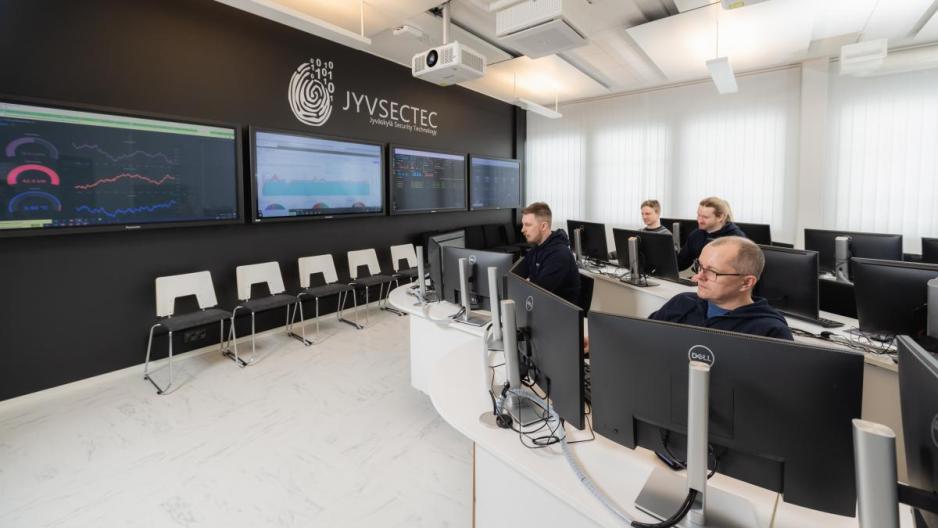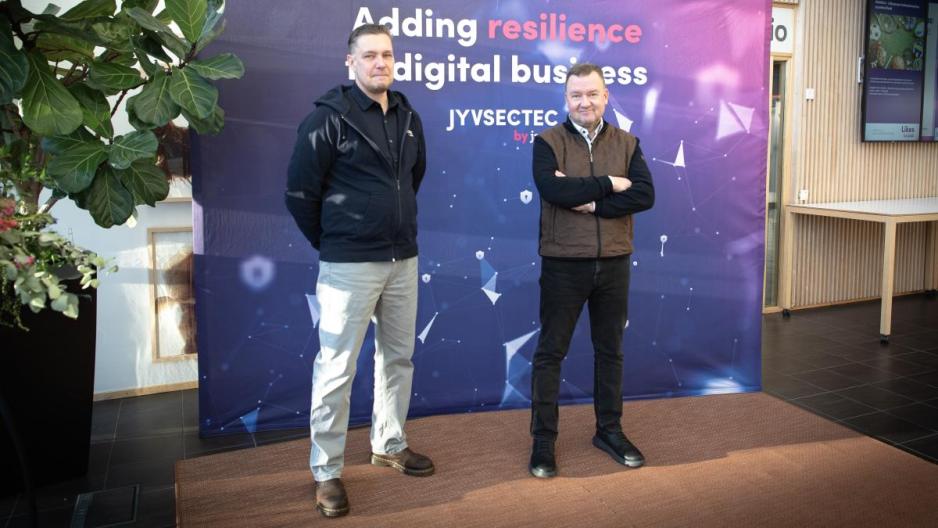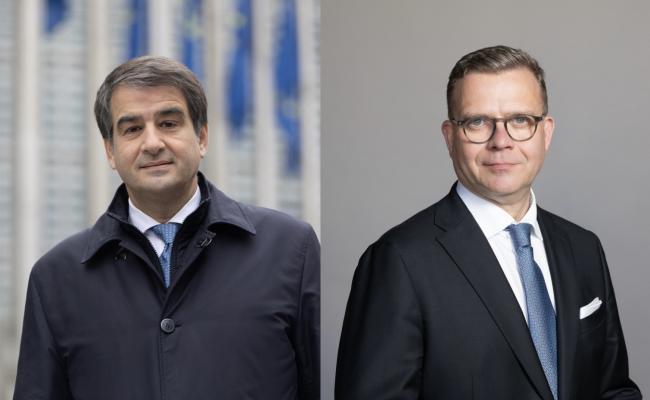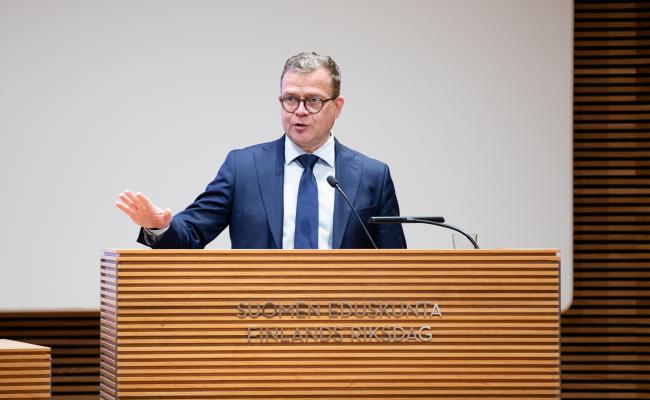Finland Strengthens Cybersecurity in the North With Extensive Exercising

Finland is systematically addressing cybersecurity with national exercises. Last week, many heads and hands within the northern Finnish municipal sector and critical infrastructure operators were trained in dealing with various threats in the cyber domain. (Illustrative photo: Mika Pakarinen, Keksi/LVM)
Finland is enhancing cybersecurity competence in its northern region. Municipalities and critical infrastructure operators recently participated in a cyber exercise under state auspices. "We gained experience in dealing with many kinds of threats," says Rovaniemi’s Chief Information Officer.
This year's first national cyber exercise in Finland was recently concluded, the Finnish Ministry of Communications informed on Tuesday.
This edition was targeted toward municipalities and critical infrastructure operators.
The participants included many cybersecurity, management and communications professionals from Northern Finland (the the administrative regions of Lapland, Kainuu and Northern Ostrobothnia).
"Almost 40 employees from the City of Rovaniemi attended the exercise, including senior management. Our service providers, ICT providers, and critical operators from water and electricity companies also joined in,” says Harri Ihalainen, Chief Information Officer in Rovaniemi, Lapland.
The national cyber exercises (KYHA) are organized by the Jyväskylä Security Technology (JYVSECTEC) center in collaboration with the Finnish Ministry of Communications.
Finland's Security Committee, which assists the government in matters pertaining to comprehensive security, also plays a guiding role in implementing the exercises.

Co-organizer of the cyber exercise: JYVSECTEC is an independent center for research, development, and training in cybersecurity. It operates as a part of the Institute of Information Technology at JAMK University of Applied Sciences in Jyväskylä, Central Finland. (Photo: JAMK)
Cybersecurity
· The focus is on countering digital security threats, more specifically internet-related threats.
· The threats result from active actions by threat actors. In this sense, cybersecurity is not about accidents or errors, but such conditions can, however, be exploited by threat actors.
· Cybersecurity is not directly related to the information stored on devices or online but to the devices themselves, services, systems, people, and infrastructure.
· In short, cybersecurity is about protecting e.g. the devices we use (such as computers and smartphones) and the services we access against attacks – and thus preventing system damage or theft of data.
Advanced design
National cyber exercises are referred to as central in developing Finland's concept of comprehensive security.
Participants are carefully selected and get to hone their skills within a unique exercise framework over several days.
The exercise environment is designed to stimulate an understanding of how cyber emergencies can impact their operations and cooperation with others. It also opens up insight into how the situations can be reflected in society and for the individual citizen.
"We noticed how professionally this exercise was organized. Rovaniemi is a tourist destination, and we gained experience in dealing with many kinds of threats that would affect, for example, our residents, visitors, and tour operators,” says Ihalainen.

Tero Kokkonen, Director of JAMK's Institute of Information Technology, and Rauli Paananen, Finland's National Cyber Security Director. (Photo: JAMK)
Training of many professionals
In total, this cyber exercise involved 150 people from the entire country. Per the national model, more than 1,800 first-time participants have participated in such exercises since 2021.
“It is important to involve new participants, as organizations can then comprehensively increase their skills and their knowledge of the cooperation. This time, the exercise for municipalities and critical infrastructure operators had a particularly large group of first-time participants," says Rauli Paananen, Finland's National Cyber Security Director.
"It is an objective of the national cyber exercises to have at least 2,000 first-time participants between 2021 and 2025. The exercises also have more experienced participants who can support those attending for the first time," says Tero Kokkonen, Director of the Institute of Information Technology at JAMK University of Applied Sciences.
Finland has organized national exercises in this field since 2013, the aforementioned ministry informs.
Also read (the article continues below)
Comprehensive security
In mid-January, Finland's security strategy for society was updated by the government.
The update has primarily been made in light of a changed security situation (such as at the border with Russia) and lessons learned from the Ukraine War.
The strategy describes the comprehensive security concept, which is based on authorities, businesses, organizations, and citizens working together to safeguard vital societal functions.
The concept is described as the foundation of resilience in Finnish society.
The objective of the strategy, adopted as a government resolution, is to provide all actors with a shared frame of reference for implementing comprehensive security from their perspectives.
“The new strategy emphasizes the importance of stronger resilience, society’s ability to respond to disruptions and crises, and the key role of individuals in enhancing security," said Finland's Minister of Defense Antti Häkkänen (National Coalition Party) at the launch.

Finland's Minister of Defense Antti Häkkänen recently presented the government's updated security strategy for society. Here he is at the border between Finnish Lapland and Finnmark county, Northern Norway, during the Nordic Response military exercise in winter 2024. (Photo: Tue Skals)
Knowledge sharing
"Russia’s war of aggression against Ukraine and its broad-spectrum influencing activities highlight the responsibility of all branches of government to prepare for hostile activities by state actors,” continued Häkkänen.
The strategy states that Finland must both strengthen its own security comprehensively while also considering efforts within the framework of the EU and NATO.
“Our concept for comprehensive security is internationally renowned, and we will continue to improve it as part of the Alliance and the EU. Many of our allies have already shown great interest in the outcome of our work. We are also prepared to share our knowledge with our EU and NATO partners,” the Finnish defense minister pointed out.
Norway has a lot to learn from Finland's expertise on civil preparedness and resilience, the Norwegian Foreign Minister Espen Barth Eide (Labor) recently told HNN in the context of developing closer cooperation in the northern Nordic region.
Also read (the article continues below)
Aiming higher
Finland has a long history of working with comprehensive security, said Esa Pulkkinen, Chair of the country's Security Committee.
“We have been preparing for various disruptions and crises for decades in Finland. We have the ability of determined response, as we have recently demonstrated when faced with instrumentalized migration, damage to undersea infrastructure, and interference with communications," Pulkkinen pointed out and continued:
"However, our preparedness will never be complete, and we must continue to improve it. We are all needed in this work."
Similarly, the minister of defense underlined that Finland should not settle for what the country has achieved so far.
“Instead, we will continue to develop and exercise even more effective practices. We must ensure our response in all crisis situations as well as our quick recovery. The business community and civil society organizations are part of this through their own preparedness,” Häkkänen stated.








